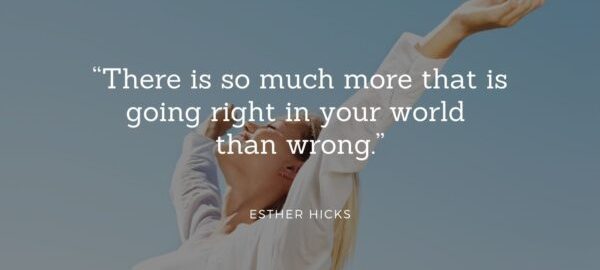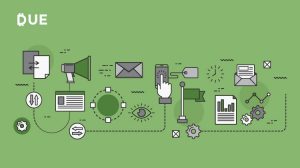Social media can improve your life if you know how to use social media for good. Learn how to use social media wisely to be a happier human being.
Do you feel like quitting social media for good? Are you tired of the fear and negativity that you see in your social media feed?
The question you should ask yourself is not “Is social media bad or good?” or “Does social media do more harm than good?” but how to use social media wisely and responsibly.
You see, social media is a tool, the way a hammer is a tool. And just as you can use a hammer either to build a house or to hurt someone, you can use a tool like social media to help or to harm.
So if you’re asking, is social media doing more harm than good in your life, you need to look at the intentions behind your personal use of social media.
For most people, it takes a while to learn how to use social media responsibly because it’s a new medium for non-millennials, so the challenge for many of us is to learn how to use social media correctly.
In the past few months, we have all faced challenges with our personal use of social media and seen how easy it is to get sucked up into the fear and negativity that it can spread.
But, while you can’t choose what you want to see in the mass media, you can curate your newsfeed and news consumption on social media and choose to see only what you want to.
Reasons Why Social Media Is Good
There are many reasons why social media is good for teens, and experts believe that social network sites could even have the potential to improve our well-being and happiness.
I have never bought into the hysteria about screen time and mental health. In fact, recent research has found that increased screen time is not related to worse mental health.
Studies have found that in some cases, the use of technology actually reduced feelings of worry and symptoms of depression among participants, and adolescents who spend the most time on technology creating their own content may instead be enjoying better mental health.
Studies have also found that positive interactions and participating in collective action through social media, such as tweeting about sexism, can serve as a collective action that can enhance women’s well-being.
The Me Too movement which began to spread virally as a hashtag on social media in 2017, showed how social media and social change can go together. There are also a growing number of cases where police use social media to solve crimes.
Charities are using social media for good causes and to raise funding for issues from wildlife conservation to world hunger, and there are athletes using social media for good.
There are many advantages of social media for students in learning and education and the use of social media in education has exploded with parents turning to homeschool and online tutoring websites during the pandemic.
If you’re still trying to think of reasons why social media is good for society, just remember that social media has brought the world together like never before.
Despite all the hype about social media and social isolation, studies have found that social media can decrease loneliness when it is used to enhance existing relationships, or forge new meaningful connections, but not when it is used as a substitute for real-life social interaction.
The debate today is not around why is social media good, but how and why people use social media. Like any other tool or medium, it’s a person’s intentions that define their ethical use of social media, and excessive social media use can be harmful, just as the excess of anything can be harmful.
How To Use Social Media In A Good Way
What you need to remember is that proper use of social media can actually enhance your personal growth, happiness, and expand your world by helping you make the right connections.
In this article, you’ll learn some tips for responsible social media use and how to use social media in a good way so that it becomes your most useful self-growth tool.
-
Stop Doomscrolling
Doomscrolling is the compulsion to consume negative news on social media. In Psychology Today, Pamela B. Rutledge Ph.D., M.B.A. writes that our brains are hardwired to doomscroll, especially in times of uncertainty.
According to experts at the University of Pittsburgh, the reason people are incessantly scrolling for negative news is that “we’re hard-wired for it on an evolutionary level because if we learn about the big scary thing or we get the answers, then we can control our environment.”
Doomscrolling can lead to anxiety, depression and fatigue because, as Law of Attraction teacher, Esther Hicks, says, “Your life is but a reflection of the predominance of your thoughts.”
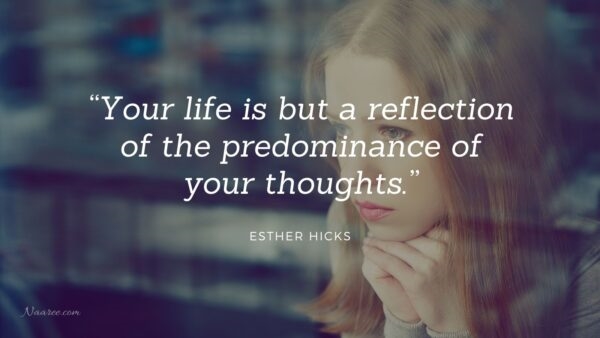
Whatever you give your attention to will grow in your life and doomscrolling or giving your attention to negative news is creating your life by default.
-
Use Social Media Mindfully
According to research from UBC Okanagan, passively scrolling through posts may not result in feelings of happiness. This is because focusing on “what is” is never conducive to happiness.
As Esther Hicks writes in her book The Law of Attraction: The Basics of the Teachings of Abraham, “In order for things to change, you have to see them as you want them to be rather than continuing to observe them as they are.”
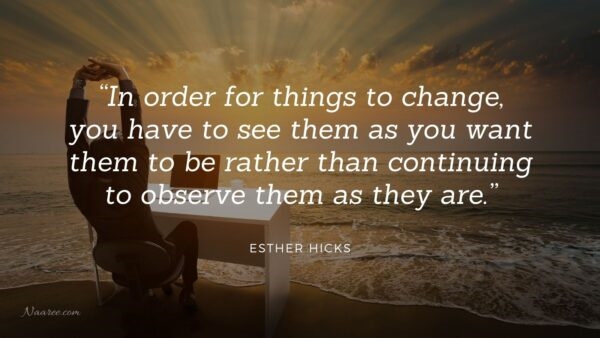
“But shouldn’t I know what’s happening in the world? Shouldn’t I be aware of what is,” you might say. Only if you want to invite more of “what is” into your experience!
As many wise teachers have taught, what you focus on grows, and you create your own reality by what you give your attention to. “There is so much more that is going right in your world than wrong,” says Esther Hicks.
So take your focus off the negative news and place it on the things that make you feel good so you can invite more good stuff and good feelings into your reality.
-
Curate Your Feed
This is one action you can take to instantly give you relief from doomscrolling. If you consciously curate your feed, unfollow the doomsayers, the people and the channels that promote negativity, your social feed will instantly be much brighter.
Today, most social networks use artificial intelligence to give you control over the posts and channels you want to engage with the most. Use these intelligent tools to help you curate your feed and delete the posts you want to see less of.
Then make a conscious effort to find channels and teachers that promote positivity and share good news and positive thoughts (or put a positive spin on bad news). That way, even if you’re scrolling endlessly through your feed, you’ll only see things and news that make you feel good.
It’s not about pretending that bad stuff doesn’t exist, but about deciding whether reading about it is worth the cost of your sanity and mental wellness. As Tony Gaskins wisely said, “If you can’t do anything about it then let it go. Don’t be a prisoner to the things you can’t change.”
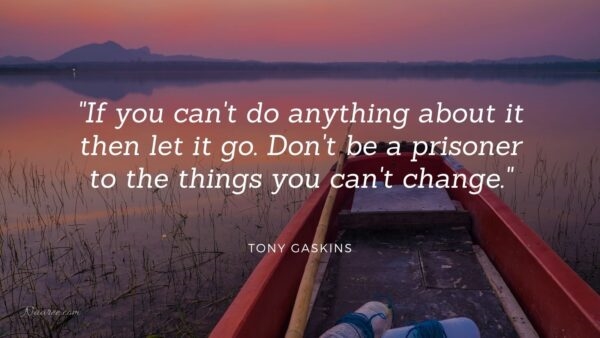
There are many steps you can take to use social media more mindfully so that it boosts your happiness, rather than takes it away. If you care about your mental health and well-being, you need to start giving your attention to more positive thoughts and start creating your life by design.
-
Stop Social Comparisons
The research from UBC Okanagan also indicates what’s most important for overall happiness is how a person uses social media. If you’re comparing yourselves with others while using social media, you will feel less happy.
The cure for that is to change your attitude, boost your self-esteem, and start focusing on more meaningful things in your life rather than empty comparisons to other people. Stop following Instagram or other social media accounts of people showing off their amazing lives, because that’s not real or authentic.
No one has a perfect life, so accept yourself the way you are and stop comparing yourself with others altogether, whether on social media or real life.
-
Start Fresh
Sometimes it’s easier to create brand new social accounts and only follow the people and news you want to see on them than spend time cleaning up your old accounts.
If you find yourself unable to curate your social feed or unfollow enough negative people to create a social feed that makes you feel better when you go through it, delete the social accounts that you tend to scroll through most and start fresh.
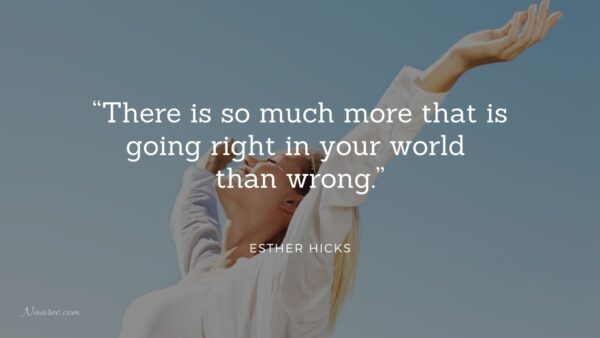
-
Use Social Media For Learning
Is social media beneficial for students? Definitely! There’s no doubt that social media is good for students in terms of learning and education. But adults can also learn how to use social media as a learning tool.
Social networks like LinkedIn and online learning apps are all creating learning hubs where students and employees can up-skill, re-skill, and prepare themselves for a new world of remote work.
-
Earn A Living With Social Media
Whether you’re an entrepreneur or an employee, there are many advantages of social media for business. Most businesses now use social media for marketing and with remote work booming, employers use social media to hire, too.
As an employee, you can learn how to use social media to your advantage when looking for a job or learn how to use social media for business, if you’re an entrepreneur.
Freelancing and gig work has taken off with many good social media apps making remote work and earning opportunities accessible to those who live in remote areas or are unable to work outside the home for cultural or safety reasons.
Whether you work on reducing social media use, learning how to use social media less, or focusing on the good side of social media, there’s a multitude of options to use social media in a good way, such as using social media for good causes.
If you don’t use social media, you may be missing out, not just on the benefits of social media for personal use, but on one of the greatest and most uplifting experiences of modern life.
I’m one of those people who likes to believe that social media does more good than harm and that it’s possible to learn how to use social media effectively and responsibly, so you can be a happier, smarter, more connected human being.
Digital & Social Articles on Business 2 Community
(24)
Report Post